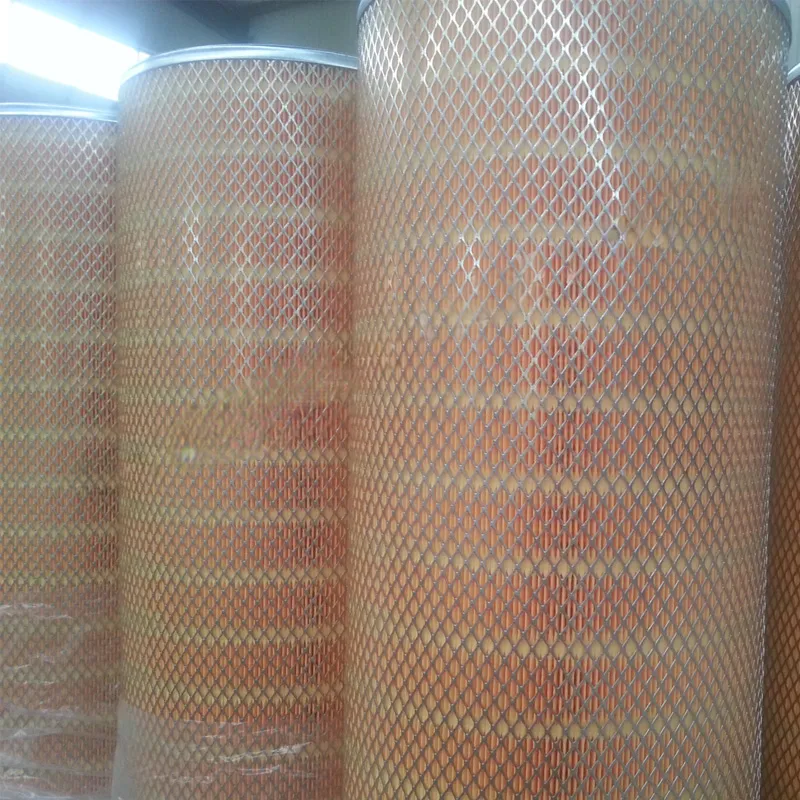 Tel:
+8615930870079
Tel:
+8615930870079
Οκτ . 22, 2024 02:33 Back to list
Air Intake Filtration Solutions for Gas Turbine Performance Optimization
Gas Turbine Air Intake Filters Enhancing Efficiency and Performance
Gas turbines play a crucial role in modern energy production, powering everything from commercial power plants to jet engines. One of the most critical components for ensuring the efficiency and reliability of a gas turbine is its air intake filter system. As gas turbines operate, they draw in large volumes of ambient air, which contains various particulates and contaminants. Therefore, the design and maintenance of air intake filters are paramount in ensuring optimal performance and longevity of gas turbines.
Importance of Air Intake Filters
Air intake filters are essential in protecting gas turbines from airborne pollutants such as dust, dirt, and other particulates. These contaminants can lead to several issues, including corrosion, erosion, and fouling within the turbine components. Over time, these problems can significantly impact the turbine's performance, leading to inefficiencies and increased operational costs. By using high-quality air filters, operators can mitigate these risks, ultimately extending the life of the turbine and improving its operational efficiency.
Types of Air Filters
There are various types of air filters utilized in gas turbine applications
. The most common types include1. Fiberglass Filters These filters are often used for their high dust holding capacity and low resistance to airflow. They can effectively capture larger particles, but they may not be suitable for finer particulates.
2. Pleated Filters These filters increase surface area and thus have a higher particulate capture capacity. They are efficient in trapping smaller particles while maintaining a steady airflow, making them ideal for gas turbine applications.
gas turbine air intake filter

3. Electrostatic Filters Employing an electrostatic charge, these filters attract charged particles, enhancing their efficiency in capturing fine dust and debris. They are often used in environments where high levels of particulate matter are present.
4. Dynamic Filters Dynamic filters use innovative designs to enhance airflow and filtration efficiency, adapting to varying particulate loads. These can be more complex but provide significant benefits in specific operational contexts.
Maintenance and Replacement
Regular maintenance and timely replacement of air filters are vital for ensuring the ongoing performance of gas turbines. Operators should develop a maintenance schedule that includes inspecting filter conditions, replacing dirty or damaged filters, and cleaning the filter housing to prevent any blockage that could impede airflow. Waiting too long to replace filters can lead to a drop in turbine efficiency, increased fuel consumption, and potential damage due to contaminants bypassing the filter system.
Impact on Performance and Efficiency
The efficiency of a gas turbine is closely related to the quality of air it processes. A well-maintained air intake filter can help maintain optimal airflow, which is essential for combustion efficiency. When air filters become clogged, they restrict the flow of air, forcing the turbine to work harder to maintain its required output. This increased effort leads to higher fuel consumption, reduced efficiency, and increased emissions. Conversely, clean filters can enhance the turbine's performance, resulting in lower operational costs and reduced environmental impact.
Conclusion
In conclusion, the role of gas turbine air intake filters is critical in safeguarding the health and efficiency of gas turbines. By understanding the types of filters available, the importance of regular maintenance, and the direct impact of filtering efficiency on turbine performance, operators can ensure reliable and cost-effective operations. Investing in high-quality filters and a robust maintenance strategy not only protects the turbine but also contributes to overall efficiency and sustainability in energy production. As the world moves towards more sustainable energy solutions, the importance of proper air intake filtration will only continue to grow.
-
Nano Fiber Technology: Revolutionizing Cartridge Dust Collector FiltersNewsAug.06,2025
-
How Activated Carbon Air Cartridges Eliminate OdorsNewsAug.06,2025
-
Dust Filter Cartridge Handling Fine Particulate MatterNewsAug.06,2025
-
Cartridge Dust Collector Filter for Welding Fume ExtractionNewsAug.06,2025
-
Activated Carbon Filter Cartridge Effectiveness Against VOCsNewsAug.06,2025
-
Activated Carbon Air Filter Cartridge Benefits ExplainedNewsAug.06,2025

 Email:
Email:





